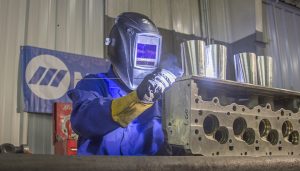How to Choose the Best Materials for Truck Welding Projects
When it comes to truck welding projects, selecting the right materials is crucial to ensure durability, safety, and performance. Whether you’re repairing a frame, fabricating custom parts, or upgrading truck components, the material choice will influence weldability, strength, corrosion resistance, and overall longevity. This guide will walk you through everything you need to consider to choose the best materials for your truck welding projects.
Why Material Selection Matters in Truck Welding
The materials used in truck fabrication or repairs directly impact the effectiveness of welding and the performance of the final product. Different metals behave uniquely when welded; they have distinct melting points, thermal conductivity, and mechanical properties. Choosing an incompatible material can lead to poor weld quality, weak joints, or even structural failure.

The Impact on Weld Quality and Durability
The best materials for truck welding must withstand high stress, road vibrations, and environmental exposure. For example, welding thin sheet metals requires materials that won’t warp easily under heat, while thick structural components demand metals that provide high tensile strength and toughness. Knowing how different materials interact with welding processes is key to achieving strong and lasting welds.
Common Materials Used in Truck Welding Projects
1. Mild Steel
Mild steel is the most commonly used material in truck fabrication and repairs. It contains low carbon content, making it highly weldable and relatively inexpensive.
- Advantages: Excellent weldability, good strength, widely available, cost-effective.
- Applications: Frames, bumpers, brackets, exhaust components.
- Considerations: Susceptible to rust if not properly treated or painted.
2. Stainless Steel
Stainless steel offers superior corrosion resistance compared to mild steel, which is essential for parts exposed to moisture or road salts.
- Advantages: Corrosion resistance, strength, attractive finish.
- Applications: Exhaust systems, decorative trim, custom body panels.
- Considerations: More challenging to weld and requires specialized welding techniques like TIG welding.
3. Aluminum
Aluminum is prized for being lightweight and corrosion-resistant, making it an excellent choice for reducing truck weight and improving fuel efficiency.
- Advantages: Lightweight, resists corrosion, good thermal conductivity.
- Applications: Truck beds, wheels, body panels, fuel tanks.
- Considerations: Requires specific welding processes such as TIG or MIG with proper shielding gas; prone to warping if overheated.
4. Alloy Steel
Alloy steels contain added elements like chromium, nickel, or molybdenum to enhance strength and toughness.
- Advantages: High strength, wear resistance, better fatigue life.
- Applications: Heavy-duty frames, suspension components, drivetrain parts.
- Considerations: Can be more difficult to weld and often require preheating.
Factors to Consider When Choosing Materials for Truck Welding
1. Strength Requirements
Consider the load and stress the welded part will endure. Structural components such as frames or suspension parts require high-strength materials like alloy steel or thick mild steel. For cosmetic parts, lighter metals may be sufficient.
2. Corrosion Resistance
Trucks often face harsh weather and road conditions, including exposure to water, salt, and chemicals. Materials like stainless steel and aluminum offer better corrosion resistance, reducing maintenance needs and extending part life.
3. Weldability
The ease of welding varies significantly between materials. Mild steel is the easiest to weld, while stainless steel and aluminum require more advanced techniques. Choose a material compatible with your welding skills and equipment.
4. Weight Considerations
For performance-focused trucks, reducing weight is a priority. Aluminum and certain alloy steels offer good strength-to-weight ratios but might require specific welding setups.
5. Cost and Availability
Material costs vary widely. Mild steel is affordable and widely available, while stainless steel and specialty alloys tend to be pricier. Balance cost with the performance benefits for your project.
Tips for Working with Different Materials in Truck Welding
Welding Mild Steel
– Clean the metal thoroughly to remove rust and grease. – Use MIG or stick welding for most applications. – Apply primer or paint after welding to prevent rust.
Welding Stainless Steel
– Use TIG welding with appropriate filler rods for best results. – Avoid contamination by using clean tools and gloves. – Control heat input to prevent warping or discoloration.
Welding Aluminum
– Use TIG or MIG welding with argon shielding gas. – Clean the aluminum surface carefully to remove oxides. – Avoid overheating to reduce warping and cracking risks.
Welding Alloy Steel
– Preheat thick alloy steel parts before welding to reduce stress. – Use appropriate filler materials that match alloy properties. – Post-weld heat treatment may be required for optimal strength.
Conclusion
Choosing the best materials for truck welding projects is a foundational step that affects every aspect of fabrication, from weld quality to durability and cost. Mild steel remains the go-to for many applications due to its balance of strength and weldability, but stainless steel and aluminum provide essential benefits for corrosion resistance and weight savings. Alloy steels offer exceptional strength for demanding parts but require specialized welding knowledge.
By evaluating your project’s specific requirements—including strength, corrosion resistance, weldability, weight, and budget—you can select materials that not only meet but exceed your truck’s performance needs. Proper preparation and welding techniques tailored to each material will ensure your custom truck welding projects are strong, safe, and built to last.
